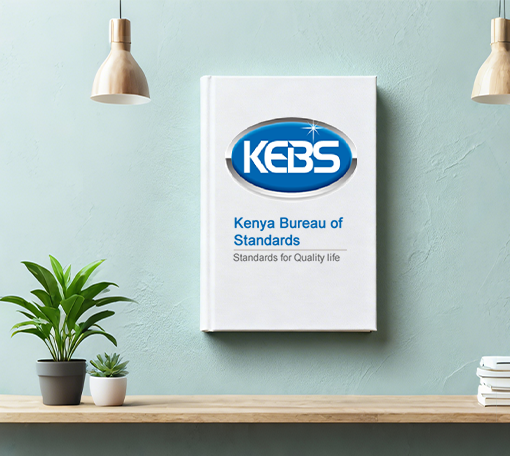What is PVoC/COC
PVoC certification, whose full name is "Pre-Export Verification of Conformity," is implemented under the leadership of the Kenya Bureau of Standards (KEBS). Its core purpose is to conduct pre-shipment verification of products exported to Kenya, ensuring they comply with Kenyan National Standards (KS standards) or internationally recognized standards (such as ISO and IEC). This process aims to protect local consumer rights, maintain fair market competition, and reduce trade disputes arising from non-compliant products.
The certification covers over 200 product categories, ranging from electronics and electrical appliances, building materials to toys, textiles, and chemical products, all of which fall under its regulatory scope. According to Kenyan customs regulations, products without PVoC certification will be prohibited from customs clearance and may face risks such as return shipment, fines, or destruction.


PVoC/COC required information
1. Submit Application: The exporter submits a fully completed Application Form (RFC), along with a proforma invoice and packing list, to an authorized agency.
2. Document Review: The authorized agency reviews the application documents to determine the applicable implementation plan and standards.
3. On-Site Inspection: The authorized agency arranges an on-site inspection of the goods, including visual checks to ensure compliance with relevant requirements.
4. Sampling and Testing: If necessary, product samples are taken and sent to an accredited laboratory for testing.
5. Certificate Issuance: Upon successful inspection and testing, the authorized agency issues the PVoC certificate.
Detailed explanation of the three Route certification paths.
Route A: Product Testing and Inspection (Ship-by-Ship Inspection)
Suitable for occasional exporters or suppliers with non-fixed export products. Each export shipment must undergo product sampling tests or provide recognized laboratory test reports before shipment, along with pre-shipment inspection. Specific process includes: The exporter submits an application form and proforma invoice to an authorized agency; arranges on-site cargo inspection and sampling testing; a CoC certificate is issued upon passing the tests. The CoC certificate issued this way only applies to the inspected goods.
Route B: Product Registration
Suitable for suppliers frequently exporting the same type of products to Kenya. Exporters can first apply to a KEBS-authorized agency to register their products. After obtaining the registration certificate, they only need to submit a copy of the registration certificate and a proforma invoice for each export. The advantage is that sampling testing is not required for every shipment; only random inspections of some batches are conducted to monitor product consistency. Product registration must be renewed and verified annually.
Route C: Product Licensing
Suitable for manufacturers with registered products who can ensure consistent production of shipped goods. After passing a review, manufacturers obtain a product license certificate. For each shipment, they only need to submit a certificate application form, a final invoice, and a copy of the product license to obtain the CoC certificate, without the need for shipment inspection or sampling testing. To maintain product certification consistency, authorized agencies may randomly inspect licensed shipments but will notify the exporter in advance. The product license must also be renewed and verified annually.
PVoC/CoC Product Range
● Electronic and electrical products ● Toys ● Automotive and related products ● Food ● Chemical products ● Textile and leather goods ● Furniture ● Construction materials ● Used products
PVOC certification is not applicable to all goods exported to Kenya; it primarily covers 14 major product categories, including but not limited to the above types.
Starting from July 1, 2025, all imported goods must include a Certificate of Origin (COO) in addition to the original CoC certificate. The certificate will be valid for three months and cannot be modified. The certification process must be completed at the port of departure.

Latest Policy Updates According to the latest 2025 guidelines, KEBS has introduced updated inspection protocols, including:
⁙ Stricter quality inspections for regulated products;
⁙ All Import Declaration Forms (IDF) must include a Unique Consignment Reference number (UCR);
⁙ Increased focus on the authenticity and traceability of origin documents.
It is particularly important to note that importers should ensure the submission of complete and accurate IDF data to avoid inspection delays caused by information discrepancies. Sensitive goods such as brown sugar are now subject to stricter scrutiny, and importers should use accurate HS codes and provide complete product descriptions.





